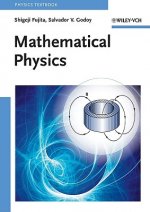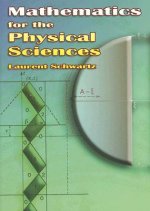
Code: 02004906
Implementation of Finite Element Methods for Navier-Stokes Equations, 1
by F. Thomasset
In structure mechanics analysis, finite element methods are now well estab lished and well documented techniques; their advantage lies in a higher flexibility, in particular for: (i) The representation of arbitrary complicated bou ... more
- Language:
 English
English - Binding: Paperback
- Number of pages: 164
Publisher: Springer, Berlin, 2012
- More about this

58.35 €

Low in stock at our supplier
Shipping in 10 - 14 days
Potřebujete více kusů?Máte-li zájem o více kusů, prověřte, prosím, nejprve dostupnost titulu na naši zákaznické podpoře.
Add to wishlist
You might also like
-

One Day Level 2
9.72 € -

Traktory a jejich využití
17.64 € -25 % -

Aeschylus Tragoediae
44.31 € -

Consultative Hemostasis and Thrombosis
186.41 € -

Elementargeist
18.14 € -

High-Performance Computing on the Intel (R) Xeon Phi (TM)
58.35 € -

From the Bottom Up The Life Story of Alexander Irvine
45.52 €
Give this book as a present today
- Order book and choose Gift Order.
- We will send you book gift voucher at once. You can give it out to anyone.
- Book will be send to donee, nothing more to care about.
More about Implementation of Finite Element Methods for Navier-Stokes Equations, 1
You get 147 loyalty points
 Book synopsis
Book synopsis
In structure mechanics analysis, finite element methods are now well estab lished and well documented techniques; their advantage lies in a higher flexibility, in particular for: (i) The representation of arbitrary complicated boundaries; (ii) Systematic rules for the developments of stable numerical schemes ap proximating mathematically wellposed problems, with various types of boundary conditions. On the other hand, compared to finite difference methods, this flexibility is paid by: an increased programming complexity; additional storage require ment. The application of finite element methods to fluid mechanics has been lagging behind and is relatively recent for several types of reasons: (i) Historical reasons: the early methods were invented by engineers for the analysis of torsion, flexion deformation of bearns, plates, shells, etc ... (see the historics in Strang and Fix (1972) or Zienckiewicz (1977". (ii) Technical reasons: fluid flow problems present specific difficulties: strong gradients,l of the velocity or temperature for instance, may occur which a finite mesh is unable to properly represent; a remedy lies in the various upwind finite element schemes which recently turned up, and which are reviewed in chapter 2 (yet their effect is just as controversial as in finite differences). Next, waves can propagate (e.g. in ocean dynamics with shallowwaters equations) which will be falsely distorted by a finite non regular mesh, as Kreiss (1979) pointed out. We are concerned in this course with the approximation of incompressible, viscous, Newtonian fluids, i.e. governed by N avier Stokes equations.
 Book details
Book details
Book category Books in English Mathematics & science Physics Mathematical physics
58.35 €
- Full title: Implementation of Finite Element Methods for Navier-Stokes Equations, 1
- Author: F. Thomasset
- Language:
 English
English - Binding: Paperback
- Number of pages: 164
- EAN: 9783642870491
- ISBN: 364287049X
- ID: 02004906
- Publisher: Springer, Berlin
- Weight: 272 g
- Dimensions: 235 × 155 × 9 mm
- Date of publishing: 12. December 2012
Trending among others
-

Effective Computation in Physics
53.84 € -1 % -

Tensor Geometry
115.01 € -

Dialogues Between Physics and Mathematics
140.28 € -2 % -

Problems And Solutions In Theoretical And Mathematical Physics (In 2 Volumes) (Third Edition)
126.24 € -

Mathematische Methoden anhand von Problemlösungen
42.91 € -

Einführung in den Lagrange- und Hamilton-Formalismus
33.08 € -4 % -

Mathematical Tools for Physics
19.64 € -17 % -

Mathematical Physics
81.42 € -

Inside Interesting Integrals
63.26 € -

Fractals, Chaos, Power Laws
28.37 € -9 % -

Lie Groups And Lie Algebras For Physicists
51.93 € -

Student's Guide to Waves
32.38 € -3 % -

Principles of Quantum Mechanics
166.55 € -

Fundamentals of Mathematical Physics
20.95 € -24 % -

Mathematics for the Physical Sciences
15.83 € -24 % -

Non-Equilibrium Statistical Mechanics
19.54 € -28 % -

Spinors in Hilbert Space
125.34 € -

Inflation and String Theory
109.59 € -

The Schrödinger Equation, 1
207.76 € -

Statistical Physics
31.38 € -10 % -

University Physics with Modern Physics, Volume 3 (Chapters 37-44) in SI Units
64.47 € -26 % -

Path Integrals In Quantum Mechanics, Statistics, Polymer Physics, And Financial Markets (5th Edition)
55.54 € -

Gravity, Gauge Theories and Quantum Cosmology
228.32 € -

Methods of Contemporary Gauge Theory
166.75 € -

Supersymmetric Solitons
41 € -

The Role of Neutrinos, Strings, Gravity, and Variable Cosmological Constant in Elementary Particle Physics
115.01 € -

Quantum Gravity
115.01 € -

Geometric and Topological Methods for Quantum Field Theory
70.38 € -14 % -

Supersymmetric Solitons
131.65 € -

Birth of String Theory
130.65 € -

Computational Physics 3e - Problem Solving with Python
127.04 € -

Mathematics for Physicists
63.67 € -

Physics from Symmetry
54.04 € -

An Introduction to Banach Space Theory
84.12 € -

Student's Guide to Waves
65.57 € -

Theory of Liquids
156.72 € -

An Introduction to Teichmüller Spaces, 1
104.68 € -

Analytical Mechanics
94.85 € -

A Textbook of Optics
89.34 € -

Probability and Stochastic Processes for Physicists
104.68 € -

Understanding Mathematical Concepts in Physics
90.04 € -4 % -

Theory Of Groups And Symmetries: Finite Groups, Lie Groups, And Lie Algebras
183.20 € -

Mathematical Aspects of Paradoxes in Cosmology
161.74 € -2 % -

Methods of Mathematical Physics
104.68 € -

Mathematics For Physics: An Illustrated Handbook
104.48 € -

Numerical Methods for Inverse Scattering Problems
179.99 € -

The Probability Integral
70.59 € -7 % -

q-Fractional Calculus and Equations
54.34 € -2 % -

Complex Integration
84.12 €
Collection points Bratislava a 2642 dalších
Copyright ©2008-24 najlacnejsie-knihy.sk All rights reservedPrivacyCookies


 15549 collection points
15549 collection points Delivery 2.99 €
Delivery 2.99 € 02/210 210 99 (8-15.30h)
02/210 210 99 (8-15.30h)